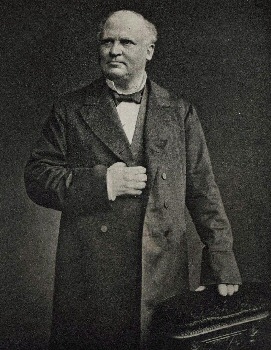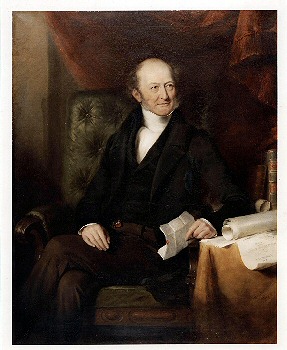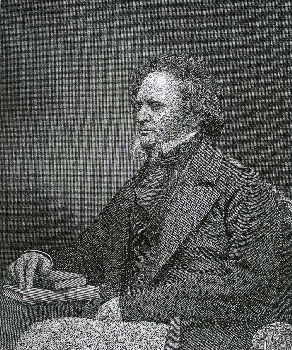|
Historic letters to the
Earls of Derby made public

HISTORIC letters to the Earls of
Derby from members of the Royal Family and other prominent figures have been
made available at Liverpool Central Library for the 1st time, on Thursday, 7
January 2016. A selection of the newly available archive was unveiled by the
present Earl of Derby at a special event in the Hornby Library at Liverpool
Central Library that night.
Thousands of papers, which also include diaries and other documents written
in the 1800's and belonging to the 13th, 14th and 15th Earls of Derby, have
been deciphered over a 20 month period by experienced archivists.
The Earls of Derby, based at Knowsley Hall, have had a significant impact as
national politicians and local magnates and landowners in Lancashire and
later Merseyside, which affected education, hospitals, law, agriculture,
trade and art.
The documents include correspondence from Queen Victoria, Prince Albert, the
Prince of Wales, Horatio Nelson, Edward Lear, the Duke of Wellington,
Charles Darwin, Benjamin Disraeli, William Gladstone, Catherine Gladstone,
Florence Nightingale and Herbert Spencer.

The letters are now catalogued in detail
and fully accessible at Liverpool Record Office in Central Library and also
available and searchable online.
Assistant Mayor and Cabinet member for culture, Councillor Wendy Simon,
said:- "This collection is a significant snapshot of our history,
giving a fascinating insight into the world of some of the most famous and
influential people of the 19th Century. I am delighted that thanks to the
work of our archivists, we are now able to make the papers available to
people who wish to view them, whether it's in person or online."
The event also launch a new publication on the history of the Earls:-
'Art, Animals and Politics.' 'Knowsley and the Earls of Derby' was
edited by Dr Stephen Lloyd, Curator of the Derby Collection and published by
Unicorn Press Ltd. It includes absorbing essays by a distinguished cast of
contributors led by historian David Starkey, writing about the political
significance of Lady Margaret Beaufort, the 1st Countess of Derby, and
broadcaster Sir David Attenborough, on Edward Lear's zoological drawings,
many of which were made at Knowsley.
It covers key facets of the family's diverse achievements. Thomas, Lord
Stanley, was created Earl of Derby in 1485 after the Battle of Bosworth
Field. Since that time the Stanleys; a great Lancastrian family, whose seat,
Knowsley Hall, is near Liverpool; have been significant in the life of the
nation as patrons and collectors, sportsmen and politicians.

The project and catalogue was produced
with support from the National Cataloguing Grants Programme for Archive
administered by The National Archives.
People wishing to access the original Derby Papers can make a booking at
the:- Liverpool Record Office, 3rd Floor, Central Library, William Brown
Street, Liverpool L3 8EW. They can also call:- 0151 233 3069 or send an
email to:-
archives@liverpool.gov.uk.
The Search Room is open from 9.30am to 6pm Monday, Tuesday, Thursday and
Friday, also on Wednesday's from 9.30am to 8pm and from 9.30am to 5pm on
Saturday.
The catalogue is also available
online now.
Did you know?
► The 13th Earl, Edward Smith Stanley was a naturalist, a patron of Edward
Lear and John James Audubon, President of the Linnaean Society and President
of the London (Royal) Zoological Society. He bequeathed his 15,000 museum
specimens to Liverpool and became the core of the natural history collection
in what became Liverpool Museum, now World Museum Liverpool, still available
to view today.
► The 14th Earl, Edward Geoffrey Stanley inherited the title in 1851, and
served as Prime Minister three times, responsible for some of the major
reforms of the 19th century. He oversaw the Government of India Act which
transferred control from the East India Company to the British Crown in
1858, leading to the Raj and oversaw the Jews Relief Act which ended the
exclusion of Jews from seats in Parliament. In 1867 his government passed
the Reform Act, which allowed working men to vote for the 1st time. As an MP
he had introduced the Irish Education Act in 1831 and had a role in the
Abolition of Slavery Act in 1834. The 14th Earl had worked to alleviate the
distress of the textile workers in Lancashire, many of whom were his
tenants, during the American Civil War.
► The 15th Earl of Derby, Edward Henry Stanley inherited the title in 1869
and was also a prominent politician. He served under his father as Secretary
of State for the Colonies, for India and for Foreign Affairs. He left 33
diaries giving great insight into his personal and public life. He donated
land that became Stanley Hospital in Kirkdale and Bootle Hospital in Derby
Road and also donated parkland in the area. He supported many educational
schemes, including Schools in deprived areas and contributed significantly
to the funding of the beginnings of the University of Liverpool and
University of Manchester.
|
